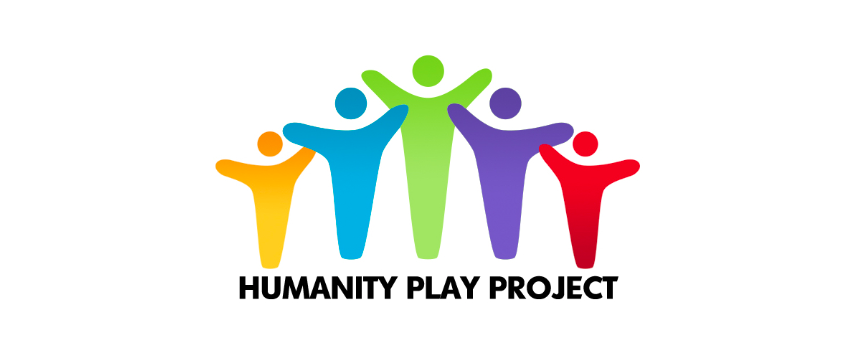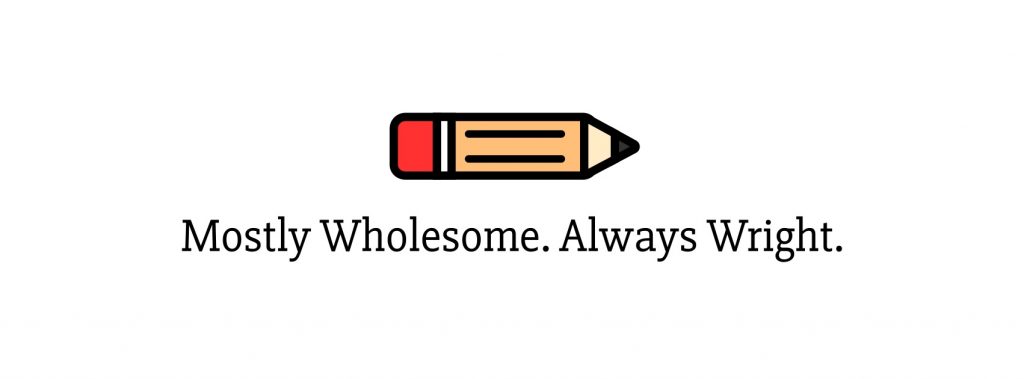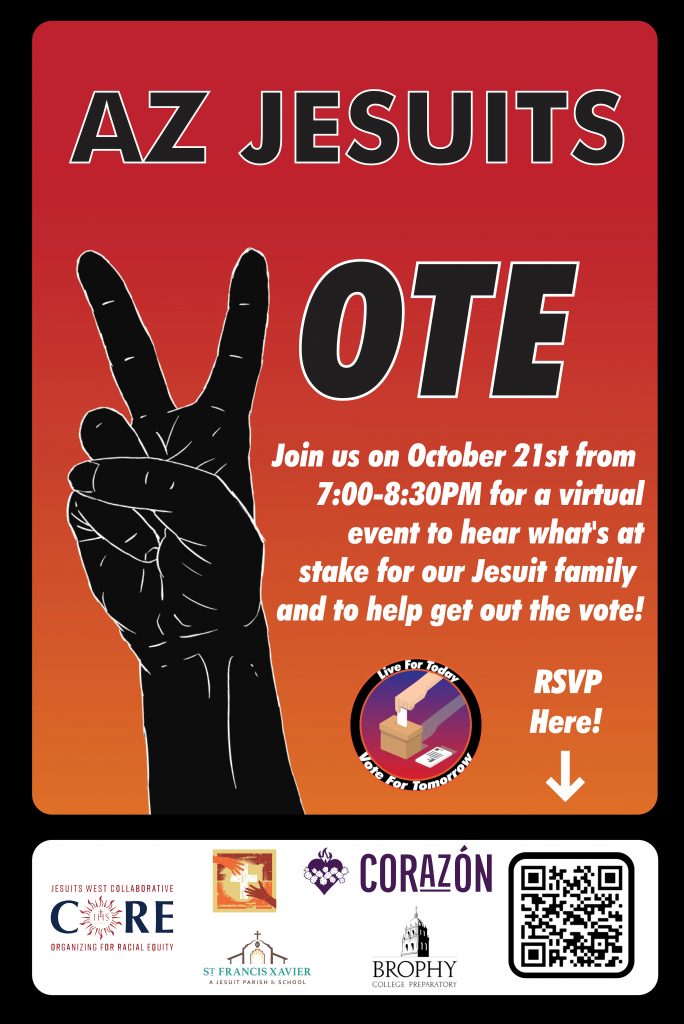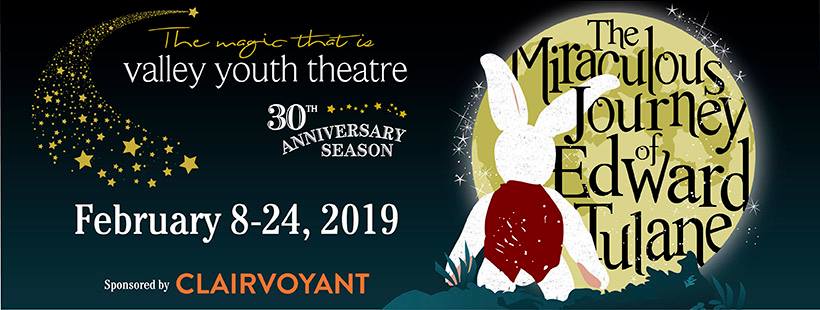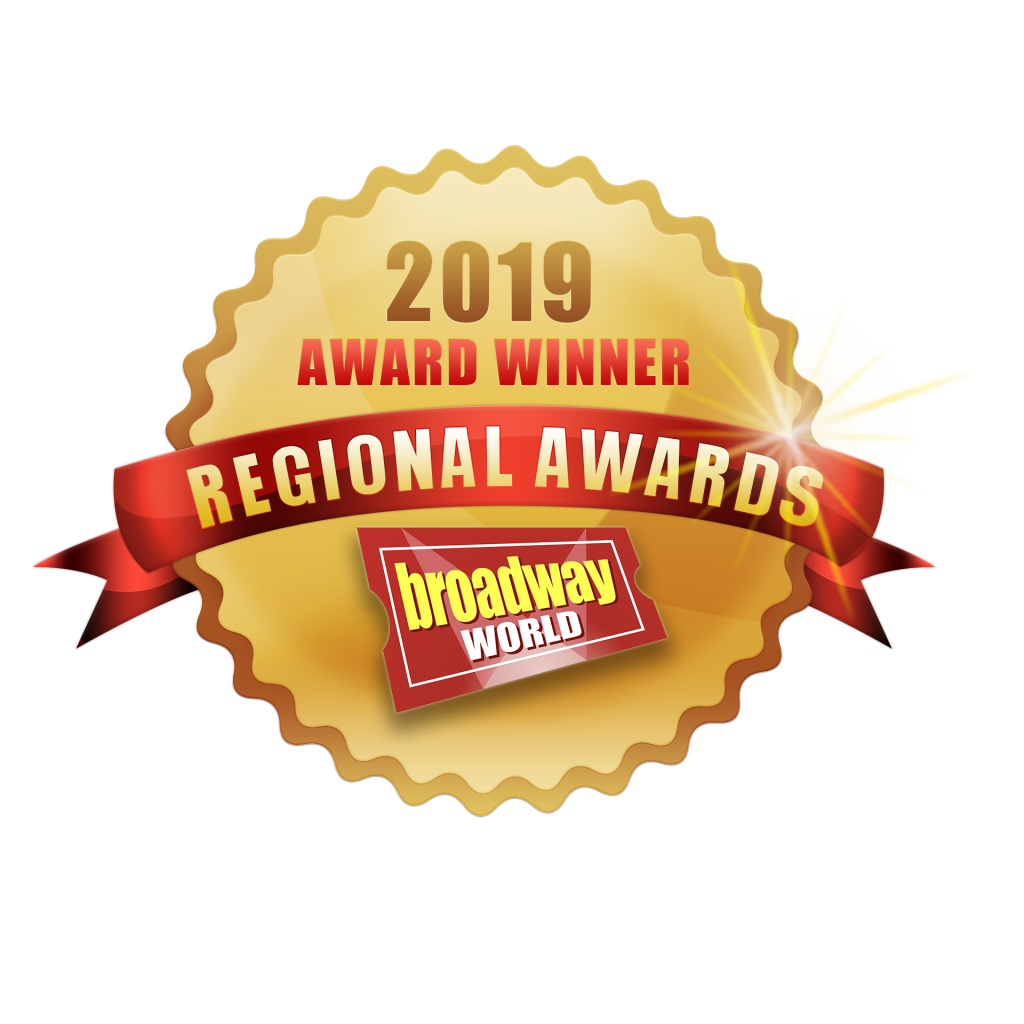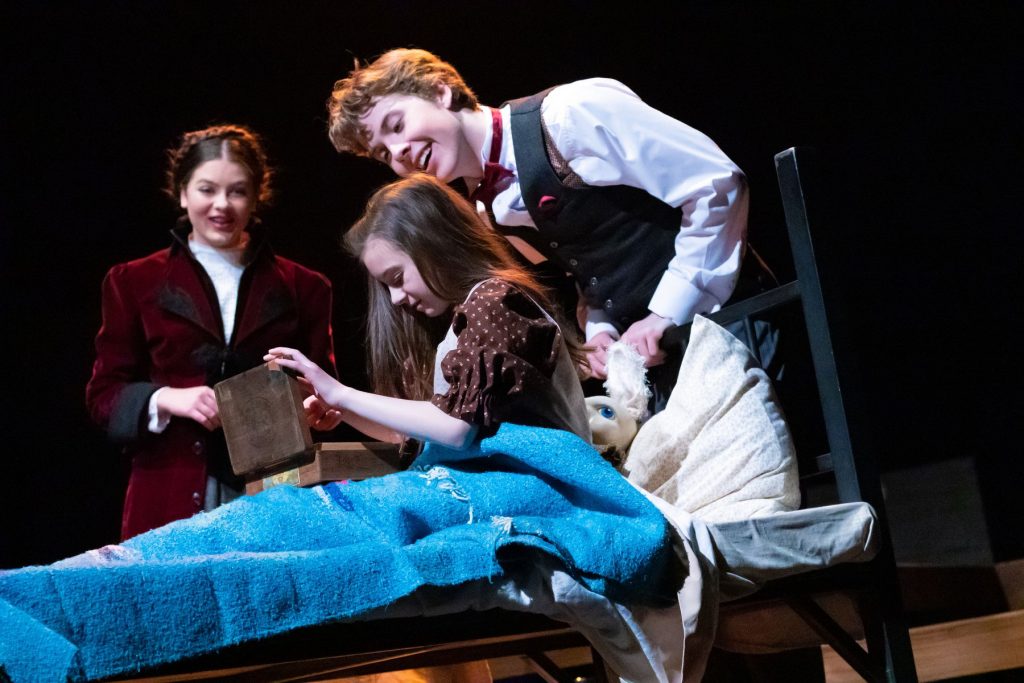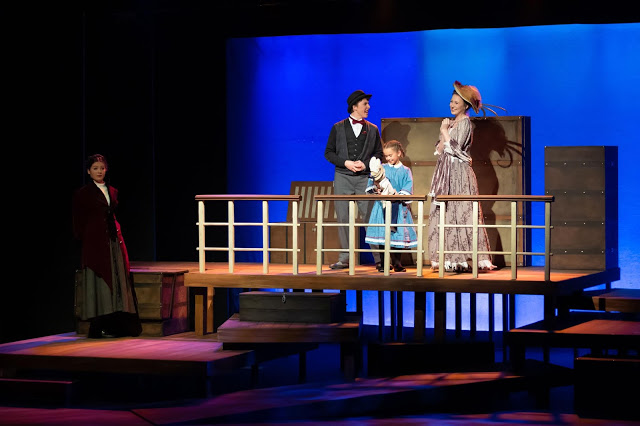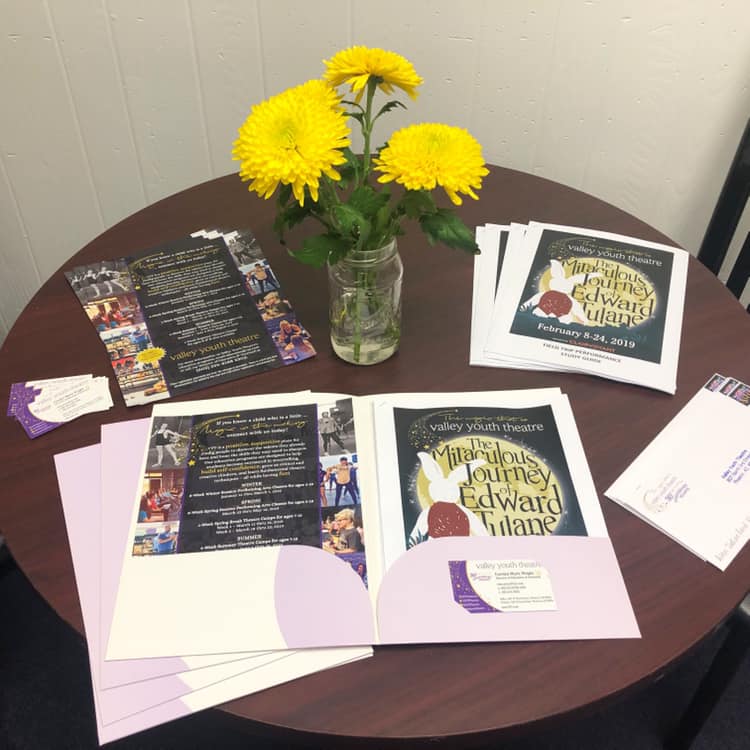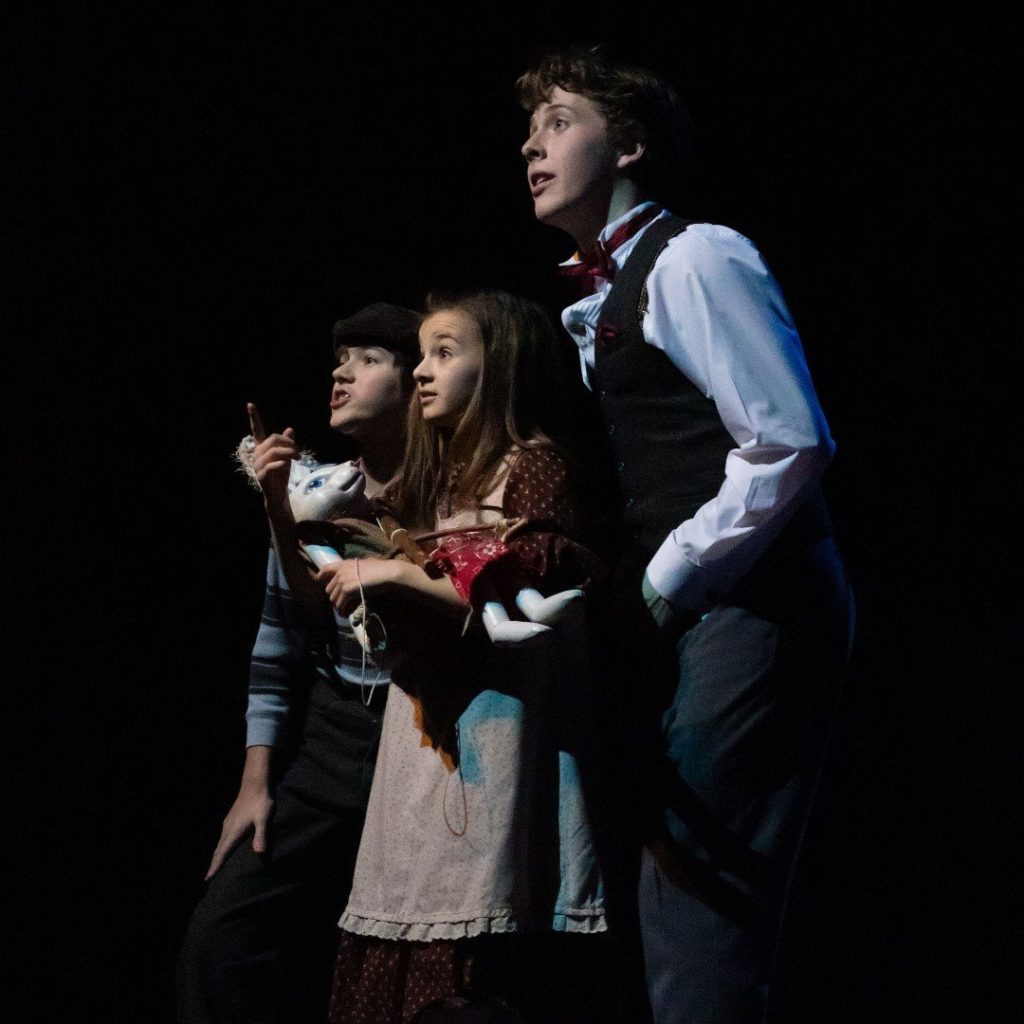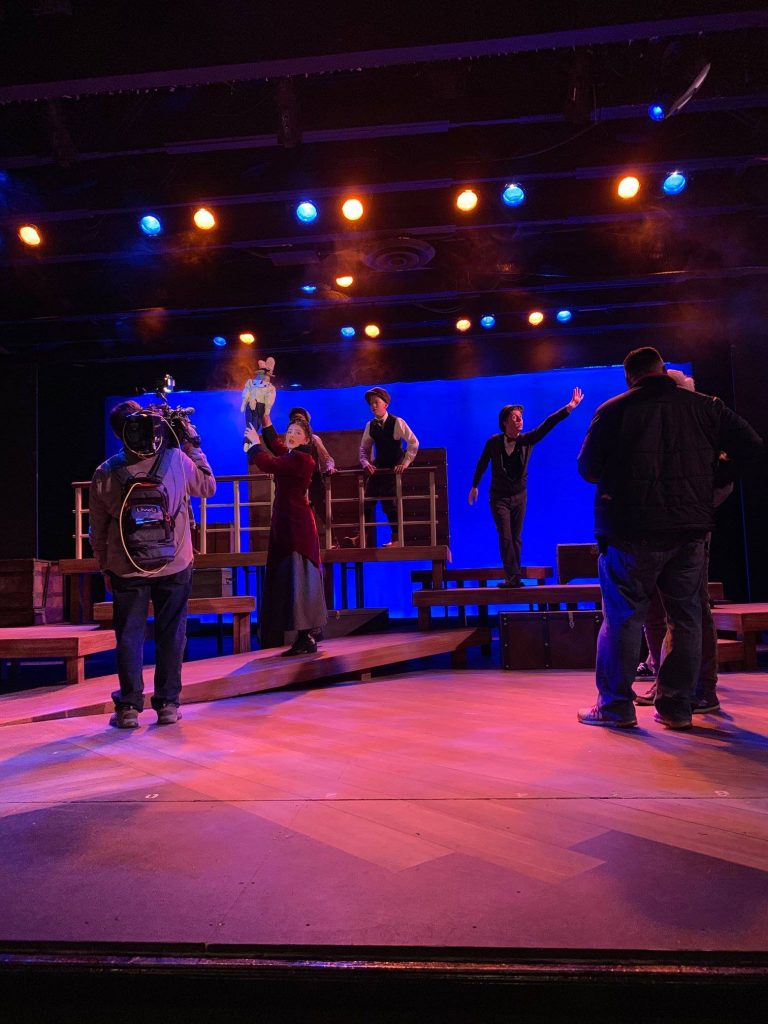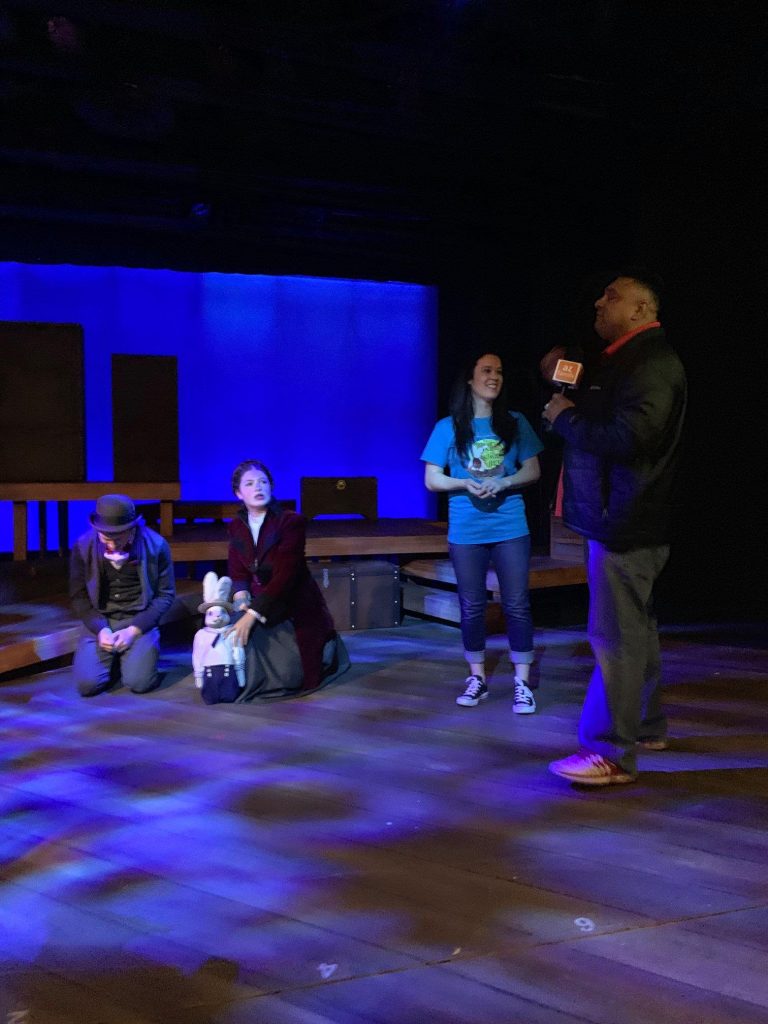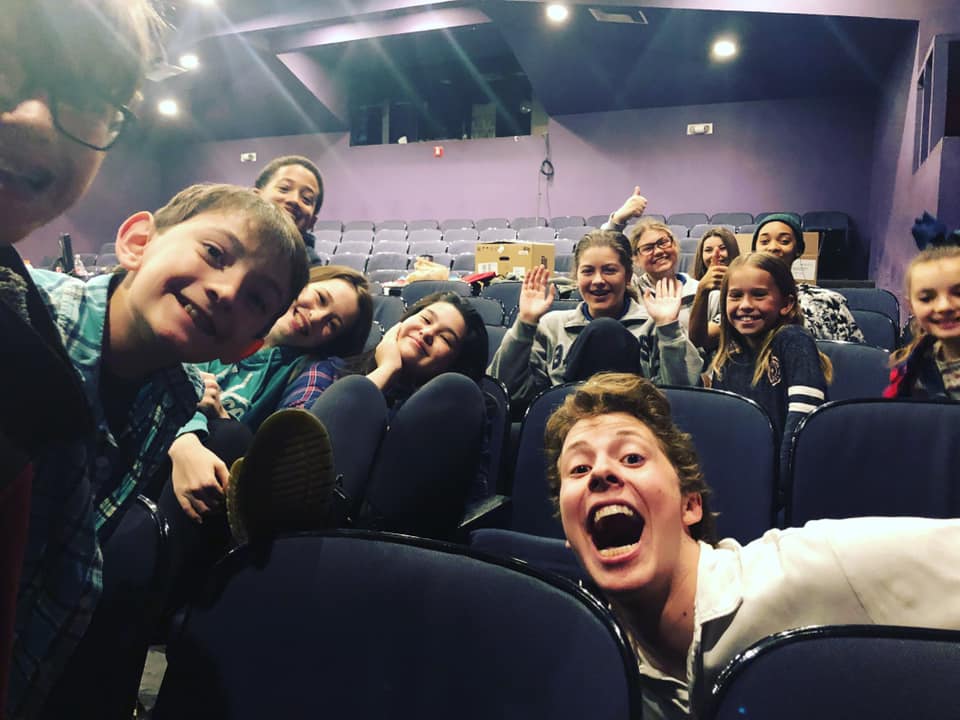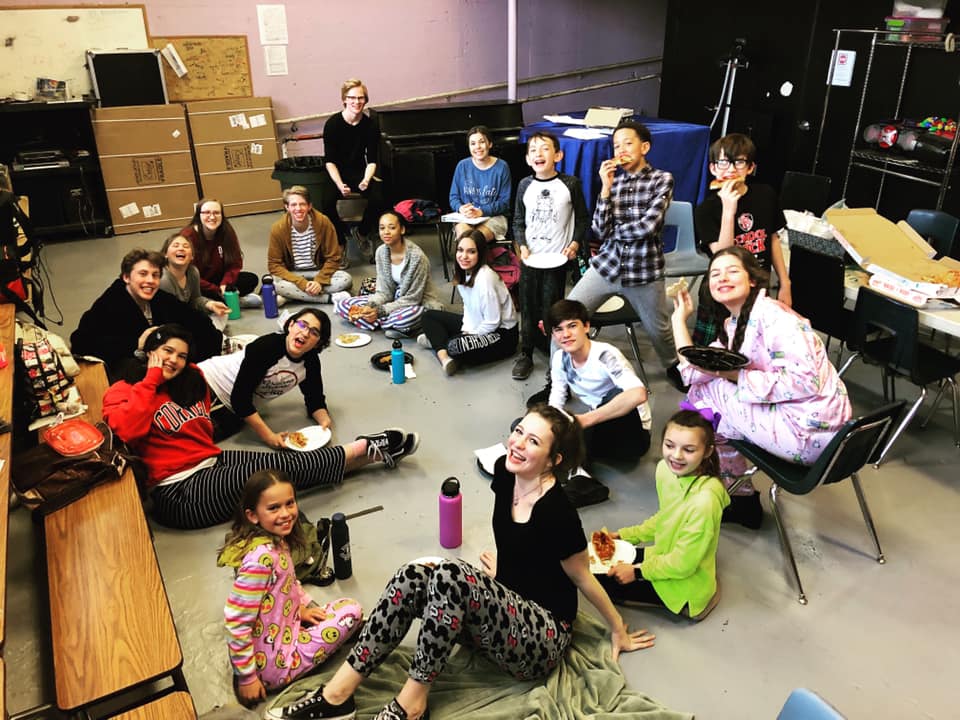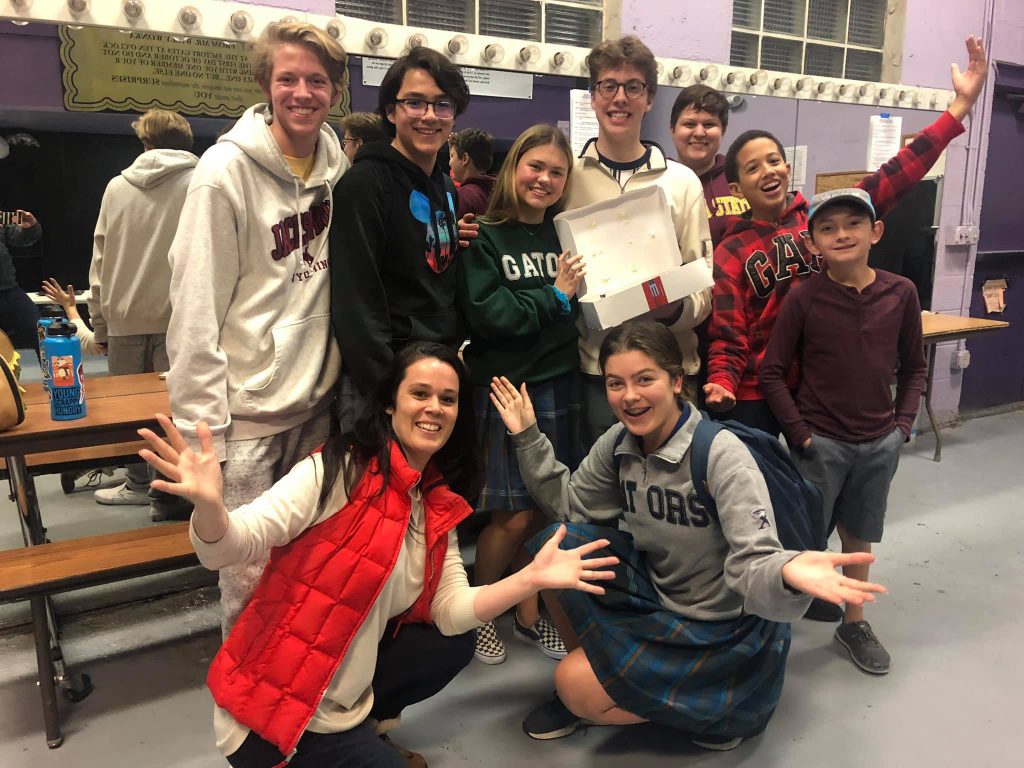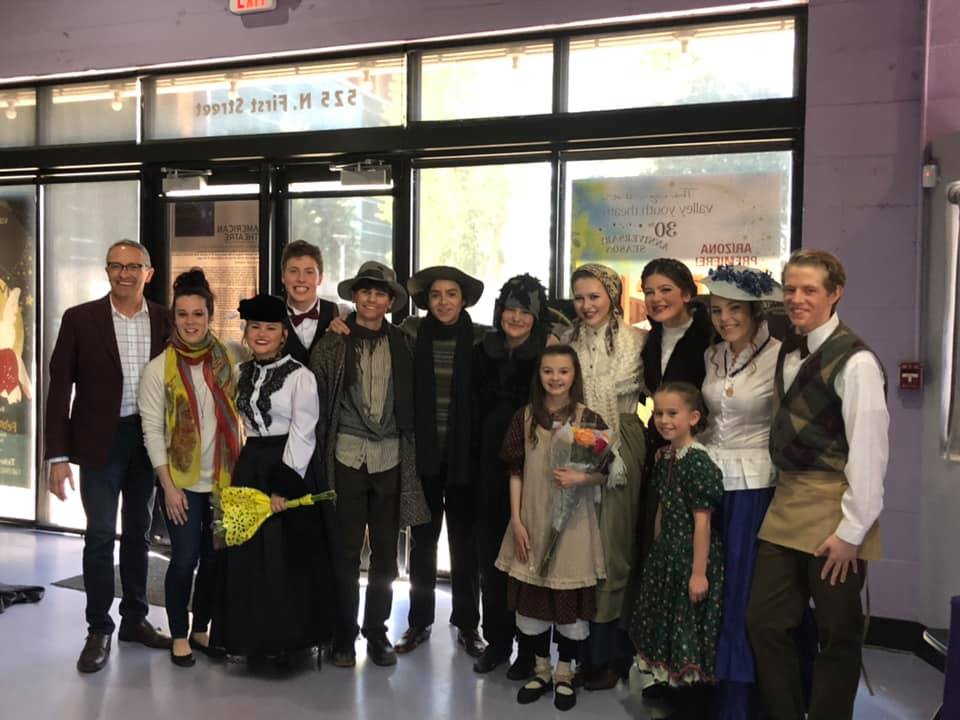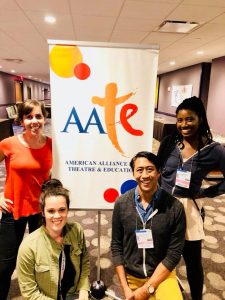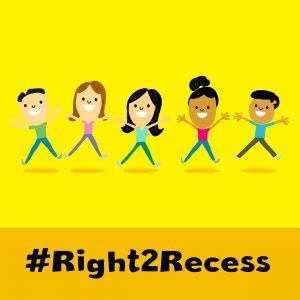An Expository Essay by Ms. Wright | OPINION
INTRODUCTION
I currently teach English II and Honors English II with sophomores at Brophy College Preparatory in Phoenix, Arizona. Brophy is a private, Catholic, Jesuit School for boys with a commitment to following the footsteps of St. Ignatius both on campus and in the community. Discernment and “walking with youth” is a crucial aspect to my work as an educator, particularly at Brophy. This essay serves as both a personal opinion piece and an example of the Expository Essay which I assigned to students this semester.
I had high hopes at the start of 2021 for my English II students–and for myself. New year, new beginnings. A blank page waiting for a story. On January 4, 2021, we started the semester with a “Notable Quotable” by American author Melody Beattie: “The new year stands before us, like a chapter in a book, waiting to be written.” The COVID-19 pandemic and civic unrest in reaction to the killing of George Floyd at the hands of a policeman marked 2020 with grief and frustration, and I was grateful to turn the page on last year. I intended to focus on critical thinking and civic discourse in the classroom and support students as they discovered their own writer voices. The new year story–and my high hopes–took an abrupt turn when the violent acts at the U.S. Capitol Building occurred on January 6, 2021.
How can we process the events of January 6 together as a school community? What are the appropriate parameters for dialogue in the classroom in relation to this insurrection? Is ‘insurrection’ an appropriate way to define these events? What does ‘appropriate’ even mean in the English classroom? Why does lesson planning keep me up at night and how do I heal the world because I am only one human being–help! You get the picture.
After reading an encouraging email to faculty and staff from my school’s principal and exploring the sources shared by my department chair, I was able to discern what to do next. An Expository Essay. I created an opinion-based assignment that challenged students to research the January 6 event from a variety of sources, using the media bias chart created by Ad Fontes Media to guide them. Students were required to read at least one “left-leaning” source, one “neutral” source, and one “right-leaning” source. An emphasis on reliability and fact-checking was also part of the assignment criteria. And then, another turn. This time, a helpful one. I think.
Our school participated in a series of events to celebrate Martin Luther King Day including experiencing a video recording of Dr. King’s speech “The Other America” at Stanford University in 1967. My high hopes returned. It was both timely and heartbreaking to interact with this speech considering the national chaos in the aftermath of January 6. This MLK Day activity was meant to be encouraging, and yet it reminded me that there is still so much more to do here in America if we want to have a just, fair society. Racial inequality and inequity are still prevalent. As Dr. King stated:
Somewhere we must come to see that human progress never rolls in on the wheels of inevitability. It comes through the tireless efforts and the persistent work of dedicated individuals who are willing to be coworkers with God and without this hard work time itself becomes an ally of the primitive forces of social stagnation. And so we must always help time and realize that the time is always right to do right.
Hearing and witnessing this speech with my students made me hopeful that young people today will not make the same mistakes that generations before us have made. As their teacher, how do I encourage them to challenge the status quo and dedicate themselves to the “tireless efforts and the persistent work” that must be done in order to make amends and make progress? How do I do this without my own biases influencing them? Is that even possible?
So I go back to the basics: human dignity. My school is founded on the principles of St. Ignatius and the commitment to serve the greater good and care for the folks who live in the “margins” of society. When we live each day and make each choice with the intention of “being a man or woman for and with others” and recognizing the human dignity in all people, perhaps we can forge a way forward. Dr. King talked about being willing “to be coworkers with God.” Sixty years later, Fr. Timothy P. Kesicki, SJ, President of the Jesuit Conference of Canada and the United States, echoes this call to action.
In 2020, the Jesuits published “Contemplation and Political Action: An Ignatian Guide to Civic Engagement,” a resource intended to guide educators and community leaders through potentially challenging group conversations. Father Kesicki opens the document with an invitation to engage in political and civic duty: “As we respond to the call to be agents of change in society inspired by God’s special love for those on the margins, we will inevitably be led into the public square to participate in the messy, urgent work of politics” (2). The intersection of faith and politics may not always be acknowledged, but it has always been there. Later in the resource, on page nine, the Jesuits pose the following question:
If we approached civic involvement open to finding God in the messiness of politics, how might our engagement be different from the darker spirit we often find on cable news and social media?
The idea surrounding “finding God in all things” then appeared to me.
On the morning of January 7, my English II agenda started with Maya Angelou’s recitation of her poem “Still I Rise.” Hello, God, I hear you. Angelou deftly delivers her recitation, finding moments of light and humor in a text that encompasses the grave realities of racism and inherited trauma. She uses the word “slave” only once in the poem, towards the ending, and yet her message is clear–and universal. There may be people in your life who want to hold you down or harm you, but you are strong and will persevere:
Out of the huts of history’s shame
I rise
Up from a past that’s rooted in pain
I rise
I’m a black ocean, leaping and wide,
Welling and swelling I bear in the tide.
We are all participants in history, and therefore must be active participants here and now as we create tomorrow’s history. We cannot stand idly by nor remain neutral when it comes to human dignity. Dr. King said that “we must always help time and realize that the time is always right to do right.” Nothing will change if we do nothing.
Then comes the question that stops me in my tracks. We are reading Michael Medvin’s opinion piece “Don’t Call It an ‘Insurrection’” in Newsweek. Medvin challenges the way the events of January 6, 2021, are being recorded in the news. He explains the possible dangers of “the mis-designation of the Capitol riot as an insurrection.” In his opinion, what the violent events at the US Capitol cannot, nor should not, be compared to the gathering of the Minutemen on Lexington Green at the start of the American Revolutionary War. Then it happens.
“Ms. Wright,” says the student. “Why should I care about this person’s opinion?”
I freeze for a moment. Why should he care? How does he not care? I have failed this young man.
To me, it was so clear. The writing assignment is an Expository Essay. We are reading examples of Opinion pieces to see different ways that professional writers format their ideas and share their points of view on a certain topic or event. We are actively engaged in civic discourse. We should care because it is happening in our nation right now. It may be taking place across the country but it still affects us here in Phoenix.
“But this is an English class,” says another student. “Why are we talking about politics in English class?”
“Politics is in everything,” I reply. “Every story, every novel, every article we read, has a writer’s point of view…is a reaction to history in some way. I do not know if one can actually separate politics from literature.”
I think back to the texts we explored during the fall semester: Have a Little Faith by Mitch Albom, American Born Chinese by Gene Luen Yang, Passing by Nella Larsen, To Kill a Mockingbird by Harper Lee, excerpts from East of Eden by John Steinbeck, Black Panther directed by Ryan Coogler, poetry by Maya Angelou, Jose Olivarez, and Rupi Kaur. My thoughts drift to the celebration of diverse identities and intersectionalities that this reading list includes: Jewish, Christian, American, American-born, immigrant, First Generation, white, Black, Chinese, Mexican, Indian, male, female, young, old, affluent, impoverished, human, super hero.
And yet, the classroom is divided. Students share snippets of opinions with our time remaining. Bipartisanship overshadows our collective ability to be “coworkers with God” as we process the aftermath of January 6, 2021.
“I’m not trying to ‘turn’ anybody left,” I continue. I then share that my intention with the English II course is to create space for students to be critical and creative thinkers and to capture these ideas and write them down in a variety of forms and formats. I have no expectation that the students’ point of views mirror my own, but I do expect that each student will support his ideas with facts, evidence, and sufficient analysis. Clearly, the “work” must continue.
In an ongoing discussion about teaching and politics on EdWeek, Social Studies teacher Abeer Shinnawi writes, “Discussing politics is vital to helping students navigate the world around them.” She continues, “As an educator, I believed my duty was to help students understand the political nature of the [2016 presidential election] campaign but within the parameters of unbiased, unwavering influence.” Later in the discussion, AP Government and Politics teacher Jennifer Hitchcok shares, “Research is a skill that is necessary from the hard sciences to the humanities.” Conscientious teachers can identify Student Learning Objectives (SLO) in a variety of subject areas that can include conversations about politics in the classroom, English Language Arts or otherwise.
In her article “Teaching High School English in the Age of Trump” for Politico, Kara Voigt interviews Julie Jee, a Poughkeepsie, N.Y.-based English teacher. Jee shares her thoughts on the topic of politics in the classroom: “I think English teachers really have a responsibility to teach their students how to voice their opinions, to write well, to read carefully, to think deeply.” These skills are crucial in the high school education experience, and, yet, students do not always embrace the topic or text offered in a particular class. In this age of hybrid school that encompasses in-person and virtual learning, the challenges increase, and in different ways.
Scaffolding and SLOs in a well-planned lesson, however, are not always obvious for the student. In fact, students may not fully comprehend some of the skills and concepts until the end of the unit or farther into the future. Or perhaps never at all. When teacher and student are only able to communicate through a computer screen, the variables increase, and the outcomes are not as clear for assessment in the moment. Planning ahead, being flexible in the class session, and providing feedback are more important than ever.
I am not a perfect teacher nor do I aspire to be so, but I certainly intend to do my best each day and provide a forum for students to be curious, inquisitive, and analytic. I remind myself that student push-back is part of the process, and that I, too, can learn from my students. Sometimes my job is to deeply listen, go back to the drawing board, and try again tomorrow.
I am not alone in the struggle to explore current events and insert ideas and topics into the curriculum without bias. Teachers have a long tradition of “toeing the line” when it comes to boundaries and academics. But this year is different. In these first few weeks of 2021, I have realized that bias and bipartisanship have started to parallel each other. Opposing opinions in the classroom quickly move towards politics, even if that was not the initial objective or focus point. How, then, can the English classroom serve as a rehearsal room for the real world? Start with guidelines for discourse and possible outcomes. Acknowledge and celebrate the way our opinions, our faith, our belief systems, our ancestries differ–but not just for the sake of “peace, love, and happiness.” There will never be a time when all people think the same way, nor should there ever be. There must be, however, an agreement to honor the human dignity in each other and actively engage in the world around us. Indifference and inactivity are not options right now. Today’s headlines reference insurrection, protests, rallies, rebellions, and riots. I am sure that more terms–and the deconstruction and analysis of these terms–will appear as 2021 continues.
So how do I set up the agenda for “a class divided” tomorrow? How do I remain unbiased without being indifferent? What are the “appropriate” boundaries and how can we push those limits to challenge the status quo and enact social change? Not by staying silent, that’s for sure.
Works Cited
Ad Fontes Media. “The Media Bias Chart.” Version 6.0. AdFontesMedia.com,
https://www.adfontesmedia.com/intro-to-the-media-bias-chart/. Date Accessed:
Angelo, Maya. “Still I Rise.” Maya Angelou Live & Unplugged. Lewisham Hippodrome, 1987.
YouTube, uploaded by Literature Today UK, https://www.youtube.com/watch?v=qviM_GnJbOM, Date Accessed: January 7, 2021.
Facing History. “Responding to the Insurrection at the US Capitol.”
FacingHistory.org, 6 Jan. 2021, https://www.facinghistory.org/educator-resources/current-events/responding-insurrection-us-capitol. Date Accessed: 7 Jan. 2021.
—. “Current Events Teacher Checklist PDF Workbook.” FacingHistory.org, 27 Aug. 2020,
https://www.facinghistory.org/educator-resources/current-events/plan-ahead-current-events-teacher-checklist. Date Accessed: 7 Jan. 2021.
Ferlazzo, Larry. “Politics Belongs in the Classroom.” EdWeek, 12 Oct. 2020,
https://www.edweek.org/teaching-learning/opinion-politics-belongs-in-the-classroom/2020/10. Date Accessed: 19 Jan. 2021.
Glanton, Dahleen. “Insurrection and civil unrest are hardly the same.” The Mercury News,
16 Jan. 2021, https://www.mercurynews.com/2021/01/16/opinion-impeachment-was-the-only-way-to-prove-insurrection-and-civil-unrest-are-not-the-same/.
Jesuit Conference of Canada and the United States. “Contemplation and Political Action: An
Ignatian Guide to Civic Engagement.” Jesuits.org, 2020, https://www.jesuits.org/wp-content/uploads/2020/08/CivicEngagement-v10.pdf.
King, Martin Luther, Jr. “The Other America.” 14 April 1967, Stanford University. Speech.
YouTube, https://www.youtube.com/watch?v=dOWDtDUKz-U.
Date Accessed: 14 Jan. 2021.
—. “Convocation.” 10 Feb. 1966, Illinois Wesleyan University. Speech. SoundCloud,
https://soundcloud.com/il_wesleyan/dr-martin-luther-king-jr-at-illinois-wesleyan-university-1966. Date Accessed 20 Jan. 2021.
McKenna, Michael. “Team Trump and Team Black Lives Matter are more alike than you think.”
The Washington Times, 16 Jan. 2021, https://www.washingtontimes.com/news/2021/jan/16/team-trump-and-team-black-lives-matter-are-more-al/.
Medved, Michael. “Don’t Call It an ‘insurrection’.” Newsweek, 19 Jan. 2021,
https://www.newsweek.com/dont-call-it-insurrection-opinion-1562453.
Voigt, Kara. “Teaching High School English in the Age of Trump.” Politico, 17 Sept. 2017,
https://www.politico.com/magazine/story/2017/09/17/teaching-high-school-english-in-the-age-of-trump-215611.
Wright, Carolyn. “Examples of Opinion pieces online.” 19 Jan. 2021, Brophy Hall, Room 212,
Brophy College Preparatory, Phoenix, AZ. Period 3 Class Discussion.
